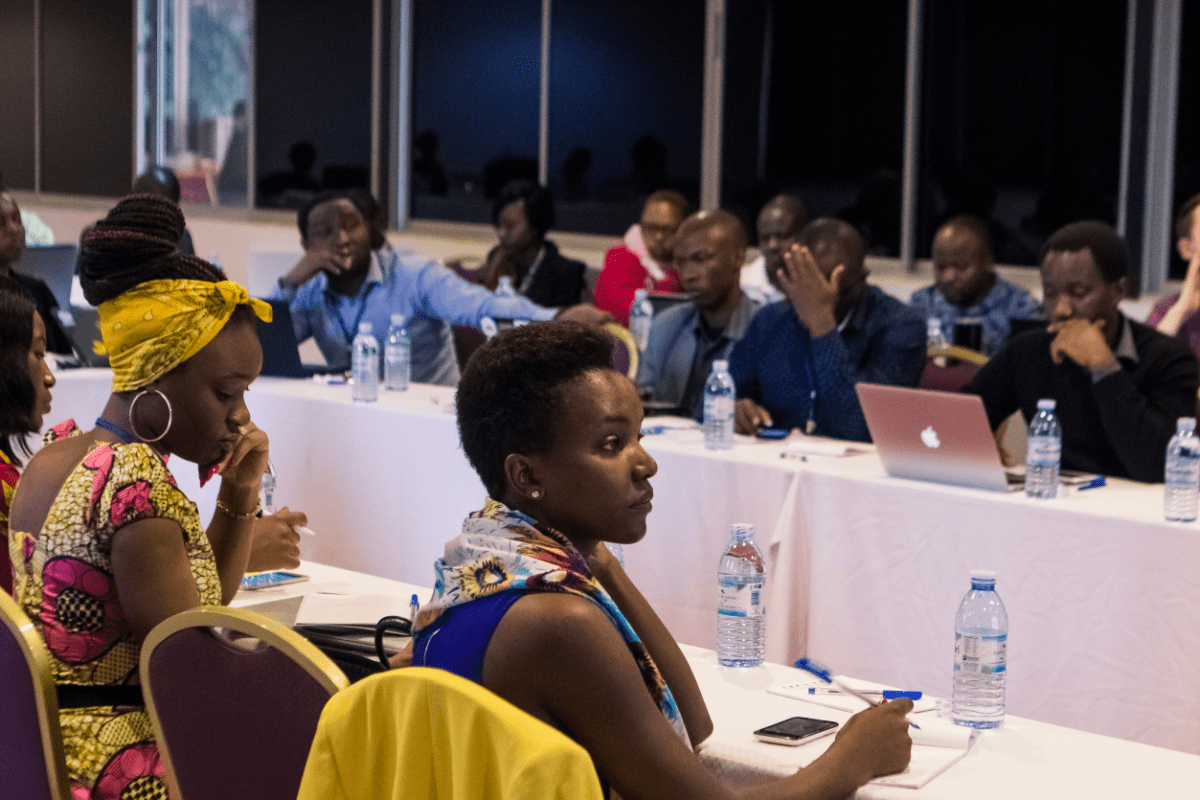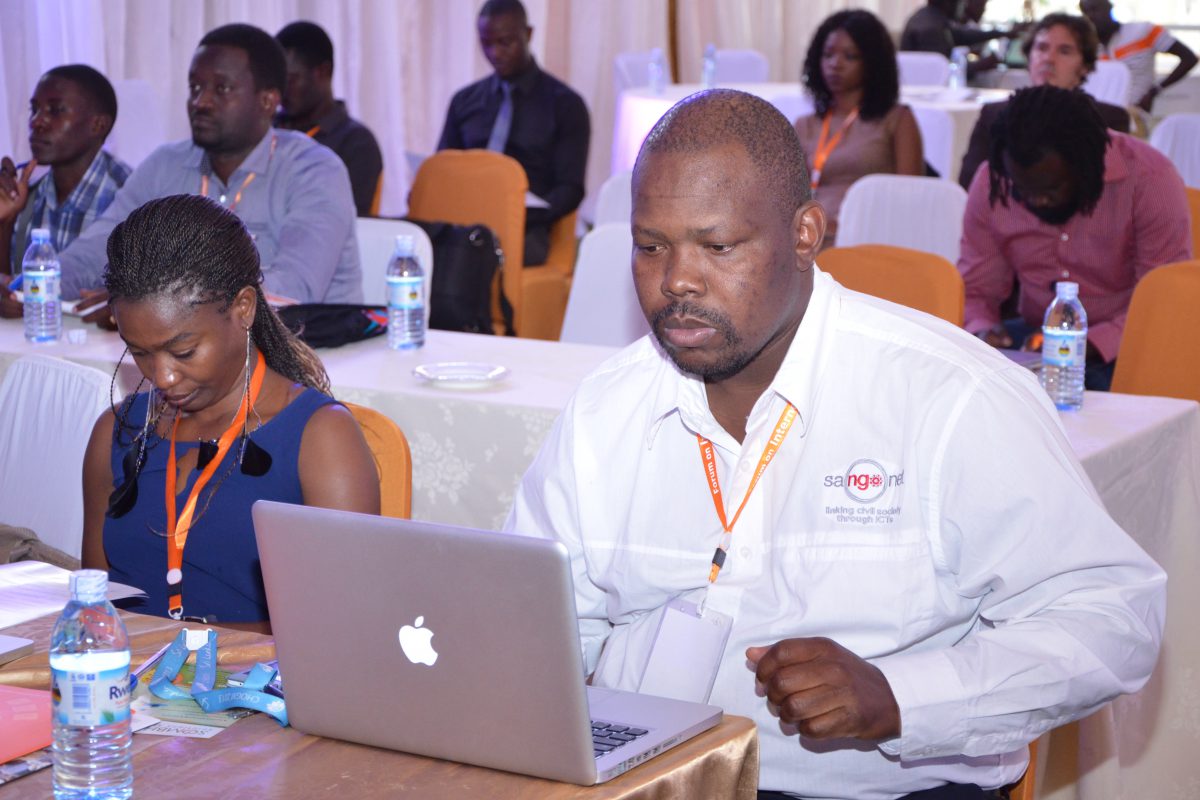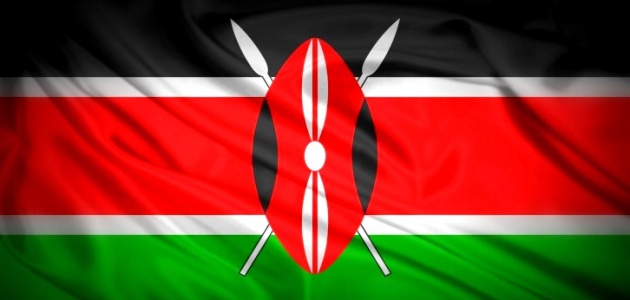The Internet Governance Forum (IGF) is an open discussion platform for the United Nations. It deals with current legal, political, social and technical issues of the Internet.
Click here for more details on the event.
Global Tech Conference 2019
ICT Spring is a Global Tech Conference hosting an array of International Professionals. This two-day yearly event is held in Luxembourg City, at the heart of Europe, and offers the participants a unique opportunity to deepen their Digital Knowledge, capture the Value of the fast-growing FinTech Industry, and explore the impact of Space Technologies on Terrestrial Businesses.
You can click here for more details on the event., Digital Age
Building Collaborations in Research for Internet Policy Advocacy in Africa
By Juliet Nanfuka |
Many African countries are caught between developing policies that support the unfettered use of the internet as a tool for social, economic and political growth, and laws that threaten citizens’ rights and use of digital technologies. Often, this is partly due to limited evidence upon which to base policies and decision-making, which results from the scant availability of relevant in-depth research.
As the need for internet policy advocacy that is informed by research grows, it is essential to increase the amount and depth of research originating from Africa. It is equally necessary to expand the methods used beyond the traditional to more contemporary ones such as network measurements, social network analysis and data mining. This has led to the need to train, connect, and build collaboration between researchers, policy makers and internet freedom advocates across the region and formed the basis of an intensive training on internet policy research methods.
The training workshop, which was held between February 27 and March 3, 2018, was organised by the Annenberg School for Communication’s Internet Policy Observatory and the Collaboration on International ICT Policy for East and Southern Africa (CIPESA), alongside several partners from across Africa. A total of 40 participants from 17 countries attended the training in Kampala, Uganda. They included journalists, lawyers, technologists, academics, telecom regulators, government officials, and digital rights advocates.
The six days’ intensive curriculum covering various topics including on policy research, legal analysis, survey methods, social network analysis, strategic communication, data visualization, and network measurement was led by experts in the field, including faculty from Makerere University, University of San Francisco, the University of Pennsylvania, as well as various think tanks and civil society organisations.
The workshop emphasised the need to embrace more collaborative push back efforts such as strategic litigation, the deployment of tools such as the Ooni probe that monitor internet speed and performance, accompanied by social network analysis, data visualisation and data scraping which can reflect patterns of online narrative. It was also stressed that these methodologies, coupled with traditional research approaches through physical interactions such as focus group discussions and key informant interviews would support more multidisciplinary collaborations and versatile communication strategy for internet policy advocacy in Africa.
Indeed, evidence-based advocacy is fundamental today perhaps more than ever, as the affronts to citizen’s rights online continuously evolve, including at a technological infrastructure level (internet throttling, internet shutdowns, surveillance and data breaches), as well as laws and regulations that increasingly criminalise internet use. More recently, financial affronts to online content production and dissemination have been witnessed in Tanzania and Uganda.
The workshop alumni join a cohort of others from the Middle East, Asia, and Latin America equipped with the skills needed to collaborate across disciplinary and professional silos for progressive internet policy and practice at national, regional and global levels.
Below are some tweets shared from the workshop:
Less than 10% of local news sites in Africa are hosted locally. Exceptions include South Africa, Swaziland & Djibouti says @EnricoCalandro & @JosiahChavula . What are the implications for local news when it is not locally hosted? #InternetPolicyAfrica @cipesaug @InternetPolicyO
— Christopher Ali (@Ali_Christopher) February 28, 2018
https://twitter.com/kudathove/status/969500199486984192
Ooni: to understand what is blocked, how it’s being blocked and who is blocking it- it’s not just the data, but the interpretation and use of the data: “we need lawyers… we need policy makers… we need activists” @OpenObservatory @agrabeli_ #InternetPolicyAfrica @cipesaug pic.twitter.com/Ip8fGhTNx7
— Laura Schwartz-Henderson 🙃 (@LauraSHendo) February 28, 2018
https://twitter.com/kudathove/status/969125256911781889
#InternetPolicyAfrica via NodeXL https://t.co/9fqeWOk0xe@cipesaug@natabaalo
@internetpolicyo@elig_safrica@bashmutumba@afrosms@d_kandeh@kudathove@simply_omhle@ngamitaTop hashtags:#internetpolicyafrica#internetfreedomafrica#internetfreedom#uganda
— NodeXL Project (@nodexl) March 1, 2018
Data is not useful unless used as part of an action: policy makers, lawyers, journalists can analyze @OpenObservatory data to interpret socio-political developments. #InternetPolicyAfrica
— Digital Society Africa (@digisocAfrica) February 28, 2018
An interesting point being driven by @Mose_Karanja during the @OpenObservatory session is that http/https could make a difference in what's being blocked or not and by who. #InternetPolicyAfrica pic.twitter.com/DQ8zwgLDw8
— Ese (she/her) (@EseoheOjo) February 28, 2018
Internet measurement: 85% of local news websites are located outside of their respective countries (mostly Europe and US). #Africa #LocalContent #InternetPolicyAfrica pic.twitter.com/jPbSFoCEyL
— Blaise Ndola (@BlaiseNdola) February 28, 2018
https://twitter.com/NHLAKANHLANHLA/status/968457060424781824
Even if your strategic litigation efforts do not result in a significant societal/institutional change it is also a victory to spark dialogue and draw attention to your cause #InternetPolicyAfrica
— ELIG S.Africa (@ELIG_SAfrica) February 27, 2018
https://twitter.com/kudathove/status/968095031763652610
Understanding likely sources of justification for internet disruption in Zambia with @Mose_Karanja @OpenObservatory. A plug for mixed methods work drawing on measurements and legal research! #InternetPolicyAfrica @cipesaug pic.twitter.com/m4OTzue3bl
— Laura Schwartz-Henderson 🙃 (@LauraSHendo) February 27, 2018
Africa’s Internet of Things: Challenges and Opportunities
By Dorothy Mudavanhu |
The Forum on Internet Freedom in Africa 2016 served as an opportunity to gather insights from different stakeholders in the information society ecosystem towards promoting a free and safe internet. The platform was used to assemble the different perspectives and thoughts on the path that Internet Freedom should take in Africa. The Forum also gave stakeholders the opportunity to commemorate the International Day of Universal Access to Information held on September 28th every year.
There were fruitful deliberations around issues on transparency and accountability of intermediaries, internet shutdowns and internet rights, using data to track rights, working against normalisation of violence against women online, counting the cost of shutdowns and cyber security strategies for African countries, to name but a few.
Problems Highlighted
- There is a gender divide in access to ICT among women and men and a lack of policies for gender inclusion in ICT.
- Internet users are ignorant of how floating data is used hence the increase in cyber crime challenges such as fraud and online stalking.
- Crimes such as terrorism and hate speech existed long before digital platforms and in order to tackle them, cyber platforms in themselves should not be the problem governments seek to eliminate. Nonetheless, unclear jurisdictions for violators pose a challenge for law enforcement.
- More and more countries have seen the politicization and militarization of the cyber space as a means to control the free flow of information. This has seen an increase in internet shutdowns and attacks against freedom of expression, which comes at a high expense. Uganda’s two internet shutdowns during 2016 cost the economy an estimated $25 million, according to some estimates.
- Depsite privacy being a fundamental right, less than 20 countries in Africa have data protection laws.
- Who carries the burden of user awareness and understanding of terms of service for social media platforms? Users, service providers or the government? Where do we draw the line?
Positives highlighted
- Citizen awareness and engagement has increased through the use of ICT for participation in governance processes and social accountability.
- Countless businesses are dependent on digital platforms. States might/ will desist from shutdowns once they discover internet shutdowns come with an exorbitant cost to national revenue such as taxation.
- Internet penetration in Africa has increasingly bridged the gap between traditional and new media for citizens.
- Service providers such as Google, Facebook and Whatsapp are working to ensure safety and security of users for their products through innovations such as end-to-end encryption which decreases the chances of interception of communication, as well as community standards and reporting mechanisms.
Recommendations
- Continued lobbying and advocacy for access to the internet for all.
- Human rights-based approaches and principles should be integrated with campaigns for accessibility and inclusivity of the internet.
- There is need for citizens to invest more in media literacy as a way of protecting themselves against false news and misinformation.
- More media coverage of women’s voices and concerns related to the internet.
- Initiation of support spaces to work against online violence, particularly that directed against women. These spaces should be platforms for victims, and also send out positive message that deters violations online.
- Enactment and/or enforcement of all-encompassing cyber laws, through multistakeholder approach, that limit the powers of governments, ensure independent oversight, and uphold rights to privacy, among others.
- Due processes for lodging cyber complaints should be transparent, made easier and less time-consuming.
- Citizens’ access to information especially that held by governments is paramount. Civil society should take a leading role in engaging on information requests and disclosure.
- Regional cooperation should resolve issues on standardisation of ICT sectors including operator standards, market growth and quality of service.
The struggle for internet freedom calls for tenacious stakeholders that do not get weary until the global community realizes unfettered access to information.
This article was first published at Zimbabwe Human Rights NGO Forum on October 10, 2016
Thanks to ICT, government secrets get ever fewer
By John Walubengo |
ICT IN POLITICS



